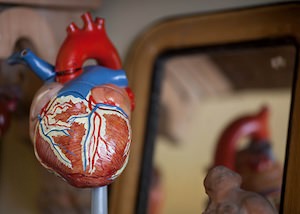Hospitals Performed Unnecessary Heart Procedures
Internal inquiries have revealed that cardiologists at several hospitals operated by HCA, the United States’ largest for-profit hospital chain, performed unnecessary and potentially dangerous heart procedures, and made misleading statements in medical reports to make it appear the measures were needed.
Internal inquiries have revealed that cardiologists at several hospitals operated by HCA, the United States’ largest for-profit hospital chain, performed unnecessary and potentially dangerous heart procedures, and made misleading statements in medical reports to make it appear the measures were needed.
Those procedures include cardiac catheterization, the insertion of a tube used to transport dye that is used to detect irregularities in arteries or the heart on an X-ray, and the placement of cardiac stents, steel mesh covered balloons that expand the walls of an artery when inflated.
The corporation denies the doctors’ decisions were motivated by a desire to make more money, but instead “demonstrate the strong focus we have on quality patient care.” Cardiology is a lucrative business, however. Medicare reimburses hospitals $10,000 for each cardiac stent and $3,000 per diagnostic catheterization. In 2000, HCA reached one of a number of settlements with the Justice Department involving Medicare fraud — billing for unnecessary procedures — that eventually came to $1.7 billion in fines and payments. The likelihood of such misbehavior — disregard for patient well-being for the sake of making money — increases when health care is capitalized.
None of the internal documents reviewed in the investigation disclosed the number of procedures or how many patients might have died or been injured as a result.
— Posted by Alexander Reed Kelly.
Your support matters…The New York Times:
At Lawnwood, where an invasive diagnostic test known as a cardiac catheterization is performed, about half the procedures, or 1,200, were determined to have been done on patients without significant heart disease, according to a confidential 2010 review. HCA countered recently with a different analysis, saying the percentage of patients without disease was much lower and in keeping with national averages.
At Bayonet Point, a 44-year-old man who arrived at the emergency room complaining of chest pain suffered a punctured blood vessel and a near-fatal irregular heartbeat after a doctor performed a procedure that an outside expert later suggested might have been unnecessary, documents show. The man had to be revived. “They shocked him twice and got him back,” according to the testimony of Dr. Aaron Kugelmass in a medical hearing on the case.
In another incident, an outside expert described how a woman with no significant heart disease went into cardiac arrest after a vessel was cut when a Bayonet Point cardiologist inserted a stent, a meshlike device that opens coronary arteries. She remained hospitalized for several days, according to a person who has reviewed internal reports.
Independent journalism is under threat and overshadowed by heavily funded mainstream media.
You can help level the playing field. Become a member.
Your tax-deductible contribution keeps us digging beneath the headlines to give you thought-provoking, investigative reporting and analysis that unearths what's really happening- without compromise.
Give today to support our courageous, independent journalists.






You need to be a supporter to comment.
There are currently no responses to this article.
Be the first to respond.